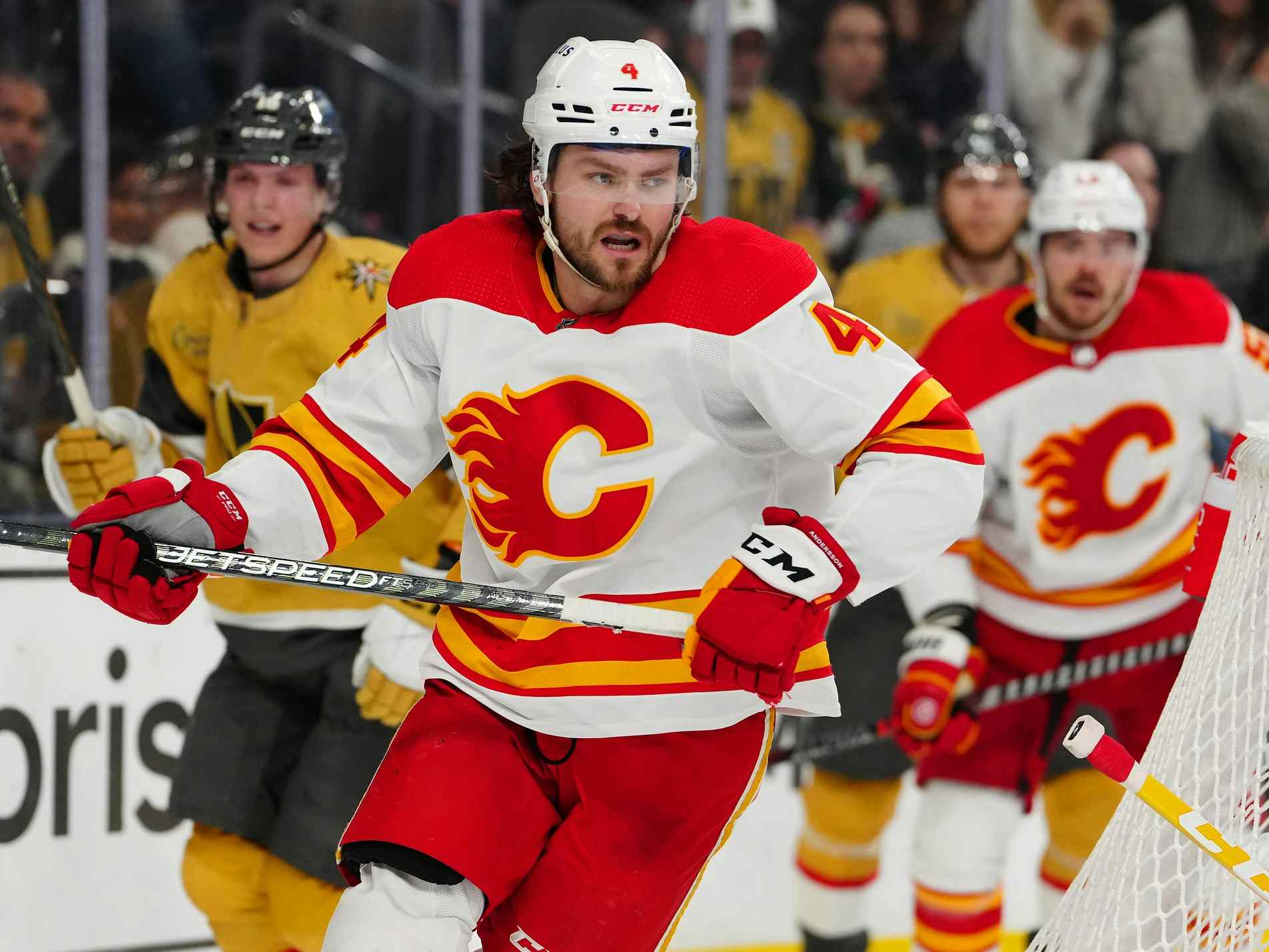Dougie Hamilton, Michael Frolik give the Flames more options
By Ari Yanover
8 years agoFor as much as they were a close, come-from-behind team all last season, the Calgary Flames were in trouble if one of their top guys went down. Sure, they may have managed to make the second round of the playoffs with a chewing gum-patched together defence once Mark Giordano went down, but it certainly wasn’t pretty.
While injuries can derail even the best teams’ seasons, and you never know what’s around the corner, it certainly doesn’t hurt to have a few more options waiting in the wings. Shortly after Giordano went down, TJ Brodie sustained an ankle injury, and that, combined with regularly playing with Deryk Engelland, limited his effectiveness.
And just imagine what would have happened had the Flames lost any member of their top line down the stretch… or what could have been had they had some workaround for when they were shut down in the playoffs.
The newest Flames help out with exactly this.
The importance of depth
Injuries are always going to happen. Oh, you have too many forwards? Let’s see if you feel that way when you lose three of them in one game (Oct. 26, 2014: and down went Mikael Backlund, Matt Stajan, and Joe Colborne, making Sean Monahan and his 86 NHL games the veteran centre).
This offseason, the Flames are in that “too many forwards” position. Is Drew Shore going to have a regular spot in the lineup? Is Micheal Ferland ready for the NHL full time? Where does Paul Byron fit in? What line is Joe Colborne on? Can Brandon Bollig keep his spot?
The signing of Michael Frolik only added to this – but it was good, because Frolik is better than all of the aforementioned. One of those guys probably would have had to play in the top six; now, the fight to make the bottom six alone is very real. This is a double whammy of positivity: first, the bottom six should be better thanks to competition alone; second, should a top six forward get injured, the quality of talent suffers, but not by nearly as much (aka no need to put a fourth liner – a Lance Bouma, say – in a top six position, when a middle six tweener can take the step instead).
The same goes for defence. If one of your top guys goes down, you needn’t immediately default to someone who is ideally a bottom pairing defenceman. If the lineup stays as it is now, then one of the Flames’ regular top four defenders is going to be relegated to the bottom pairing. Someone in the top four gets hurt? He gets bumped back up to a role he was used to and exhibited some degree of success in.
With no injuries, you’ve got depth. With them, the depth disappears, but players are still, for the most part, able to play in their proper roles. Rather than being patchwork, the lineup retains a sense of balance.
What Dougie Hamilton brings
Deryk Engelland should never have to play in the top four ever again.
Hell, if the only change to the defence that happens the rest of this offseason is David Schlemko being re-signed (which, speaking of, please do that), then Engelland doesn’t even fit in the regular lineup, much less playing 20 minutes a night.
All the Flames did was acquire a single top four defenceman, and suddenly, they’re significantly more comfortable.
Giordano goes down again? Kris Russell and Dennis Wideman don’t have to be your top pairing. They’re your second pairing, same as they were for much of last season, while Brodie and Hamilton are the top pairing. The top four suffers, because any team would suffer from losing Giordano, but not by nearly as much.
The defence core becomes that much more reliable. Engelland, or Nakladal, or Wotherspoon – someone who may not otherwise be playing – slides in, and instead of giving a low minutes defender 20 minutes a night, they take 10, and play comfortably in them, sheltered in part thanks to what is still a respectable top four defence core. Nobody has to play above their heads, and the backend is all the better for it.
What Michael Frolik brings
When not buried in the defensive zone – so basically, when not playing for the Chicago Blackhawks – Frolik can be penciled in for 40 points. The Flames don’t have the depth the Blackhawks do (or rather, did – thanks, salary cap!), so Frolik probably won’t be buried just yet. He should be in the top six, and considering what his role will probably be, it wouldn’t be surprising to see him have a career season at some point over the next five years.
So Frolik already brings one thing: more scoring. Not that the Flames needed help scoring last season, but it’s not smart to rely on a high shooting percentage. Even if the Flames do regress from that, Frolik should be able to help take the sting out of it because he isn’t just a guy who drives the play forward: he’s a guy who can help put the puck in the net.
The Flames may not have to be a one-line scoring team. Johnny Gaudreau, Sean Monahan, and Jiri Hudler lit the league up with 60+ point seasons, but after them, the next highest scoring forward was Bouma, with 34 points. Sure, the Flames can expect to continue to get offence from their backend (which is another area Hamilton adds to), but the drop off in scoring forwards was much too steep.
Last season, the top six was:
Gaudreau – Monahan – Hudler
Bouma – Backlund – Jones
This season, it could be:
Gaudreau – Monahan – Hudler
Bennett – Backlund – Frolik
And that looks significantly better.
Not only that, but if a line goes cold, the option exists to switch things up. Want to try Hudler with Bennett, the same way Hudler benefited Gaudreau? Frolik moves on up to Gaudreau and Monahan’s line, and nobody loses. Bennett is struggling? Bump him up to the first line, which we can expect to be put in position to score, and give Gaudreau or even Monahan a try on a less sheltered line. That doesn’t work? Hey, you’ve got six guys to shuffle around rather than three. You’ll find a combination that works, and if it dries up, you can find another.
This is to say nothing of secondary scoring added in to the lineup. Over the first five games in the first round series against the Canucks, the Flames’ top line managed all of seven points. (In the sixth game, they exploded for a combined nine points, but prior to that, they were not effective.) The Flames did win that series, but throw another top six forward into the mix, and maybe scoring isn’t quite as difficult to come by.
The Flames’ top line was limited to six points in five games against the Ducks. As the top line went, so did the Flames, and they floundered and died.
To take that next step, you need more than one line. Adding Frolik accomplishes exactly this. It’s not enough to be a true contender, but it’s a massive improvement that should pay dividends: not just over a playoff series, but in ensuring you play well enough to get one to begin with.
Recent articles from Ari Yanover




